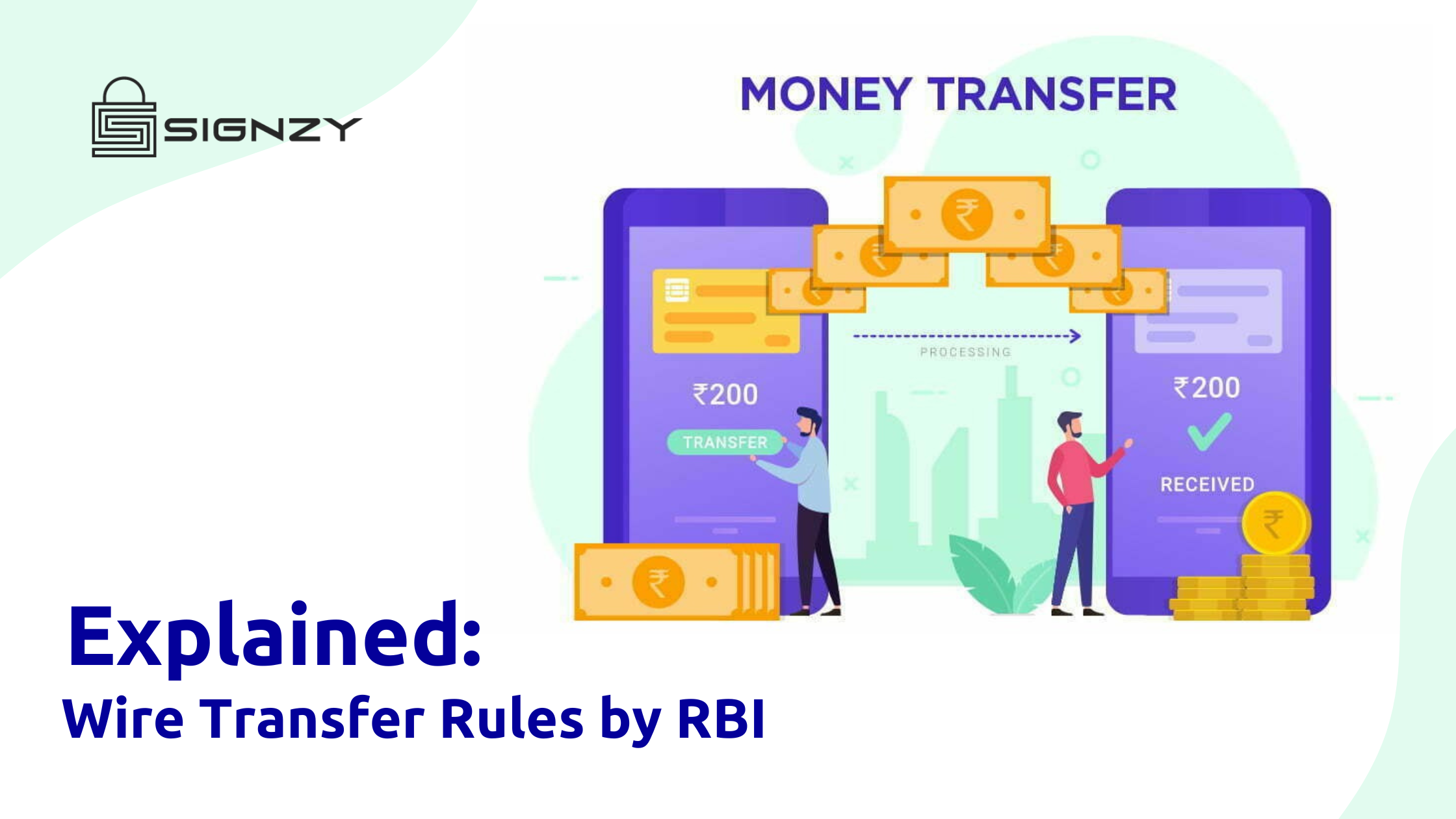The Reserve Bank of India (RBI) has updated its wire transfer rules in an effort to combat money laundering. The new rules, which came into effect on May 10, 2023, require banks and other financial institutions to collect more information about wire transfer senders and recipients.
The new rules also require banks to report all wire transfers of more than $50,000 to the Financial Intelligence Unit of India (FIU-IND). The FIU-IND is India’s central agency for receiving, processing, analyzing, and disseminating information relating to suspected or actual instances of money laundering or terrorist financing.
The RBI’s decision to update its wire transfer rules is part of a broader effort to combat money laundering and terrorist financing. Under the new rules, banks and other financial institutions must collect the following information for all wire transfers:
- The name of the sender and recipient
- The sender’s and recipient’s account numbers
- The reason for the wire transfer
- The source of the funds being transferred
Banks and other financial institutions are also required to verify the identity of the sender and recipient of each wire transfer. This can be done by requiring the sender and recipient to provide government-issued identification documents.
The RBI has said that the new rules are necessary to “strengthen the fight against money laundering and terrorist financing.” The RBI has also said that the new rules will not have a significant impact on the cost of wire transfers for businesses and individuals.
What does New Wire Transfer Rules mean for businesses and individuals?
The new wire transfer rules by RBI mean that businesses and individuals will need to provide more information when sending or receiving wire transfers. This information will include the name, address, and account number of the sender and recipient. The new rules also require businesses and individuals to provide a reason for the wire transfer.
The new rules are designed to prevent money laundering and terrorist financing. By requiring businesses and individuals to provide more information, RBI can better track and monitor wire transfers. This will help to identify and stop suspicious transactions.
It will have a number of implications for businesses and individuals. Businesses will need to update their systems and procedures to comply with the new rules. This may involve investing in new software and training staff. Individuals may also experience some inconvenience as they will need to provide more information when sending or receiving wire transfers.
However, the new rules are important for protecting the financial system from money laundering and terrorist financing. By complying with the rules, businesses and individuals can help to keep their money safe and help to make the financial system more secure.
Here are some of the key implications of the new wire transfer rules for businesses and individuals:
- Businesses will need to update their systems and procedures to comply with the new rules.
- Individuals may experience some inconvenience as they will need to provide more information when sending or receiving wire transfers.
- They are designed to prevent money laundering and terrorist financing.
- By complying with the rules, businesses and individuals can help to keep their money safe and help to make the financial system more secure.
What can businesses and individuals do to comply with the new rules?
Businesses and individuals can comply with the new RBI wire transfer rules by:
- Gathering the required information about the sender and recipient of each wire transfer.
- Verifying the identity of the sender and recipient of each wire transfer.
- Using a bank or other financial institution that is familiar with the new RBI wire transfer rules.
By taking these steps, businesses and individuals can help to ensure that they are complying with the new RBI wire transfer rules and that they are not inadvertently aiding in money laundering or terrorist financing.
Implications of the Wire Transfer Rules
The RBI’s updated wire transfer rules are a step in the right direction, however, they are just one part of the solution. India needs to do more to combat money laundering and terrorist financing, including strengthening its anti-money laundering and terrorist financing laws, improving its enforcement of these laws, and increasing public awareness of the risks of money laundering and terrorist financing.
Here are some of the implications of the new rules:
- Increased compliance costs for banks and other financial institutions: The new rules will require banks and other financial institutions to collect more information about wire transfer senders and recipients, and to report all wire transfers of more than Rs.50,000 to the FIU-IND. This will increase the compliance costs for these institutions.
- Reduced anonymity for wire transfer senders and recipients: The information required about wire transfer senders & recipients will reduce the anonymity of these individuals, which could make it more difficult for them to launder money or finance terrorism.
- Improved detection of money laundering and terrorist financing: The new rules will require banks and other financial institutions to report all wire transfers of more than Rs.50,000 to the FIU-IND. This will help the FIU-IND to identify and investigate potential cases of money laundering and terrorist financing.
How can Signzy help in the KYC of Wire Transfers?
One of the ways that Signzy can help with wire transfer compliance is by automating the process of collecting and verifying customer information at a reasonable cost. Our solution also helps to reduce the risk of human error and ensure that all required information is collected efficiently. The solution is best to comply with wire transfer regulations and reduce the risk of money laundering and terrorist financing.
Here are some of the specific ways that Signzy can help with compliance:
- Customer onboarding: Signzy can help financial institutions to onboard new customers quickly and easily. Our platform automates the process of collecting and verifying customer information. This can help to reduce the risk of human error. We have ready-to-use flows to quickly verify KYC and comply with applicable laws.
- Transaction monitoring: Our platform uses artificial intelligence and machine learning to identify and flag suspicious transactions. Further it helps to prevent money laundering and terrorist financing.
- Reporting: The platform can generate reports on customer activity, transaction monitoring, and other compliance-related data.
Our Take
Overall, the RBI’s updated wire transfer rules are a positive step in the fight against money laundering and terrorist financing. But this is not it. It is important to note that these rules are just one part of the solution. India needs to do more to combat these crimes, including strengthening its anti-money laundering and terrorist financing laws, improving its enforcement of these laws, and increasing public awareness of the risks of money laundering and terrorist financing.







